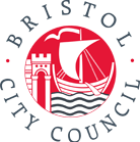Bristol 20mph here to stay as public support for the safer speed limits rides high
Safer 20mph speed limits are here to stay in Bristol, with the results of Bristol City Council’s review leaving the limits in place across the city.
- 11th June 2019
Safer 20mph speed limits are here to stay in Bristol, with the results of Bristol City Council’s review leaving the limits in place across the city. The review, which was a mayoral manifesto commitment, incorporated data from vehicle observations, research by the University of the West of England (UWE Bristol) and the opinions of residents via a public consultation.
The consultation, which ran between June and August 2018, asked people whether they supported 20mph, with separate questions on support of the limits near schools, on residential roads and on main roads. It also asked for opinions on specific roads in each ward.
There were 3,391 responses, one of the highest levels of response to a public consultation in Bristol:
- 94% of respondents (3,195 people) answered the question on whether they supported the limits near schools. 95% of those who answered supported 20mph by schools, while 3% did not
- 73% of respondents (2,473 people) answered the question on whether they supported the limits on residential roads. 74% of those who answered supported 20mph on residential roads and 21% didn’t
- 48% of respondents (1,629 people) answered the question on whether they supported the limits on main roads. 44% of those who answered supported 20mph on main roads. 49% didn’t: this totalled 798 people or 24% of the overall response to the survey. 7% didn’t know or weren’t sure
Stakeholder feedback to the survey was all supportive of retaining 20mph limits, including statements from the Police, Bristol Cycling Campaign, First Group, RoadPeace and St John’s CoE Primary School.
The research by UWE Bristol published in February 2018 found that 20mph speed limits in Bristol have prevented more than four fatal casualties a year, as well as 11 serious and 159 slight injuries. This is estimated to have saved public services including the NHS £15 million a year
The research also showed average speeds dropped by 2.7mph in the areas with 20mph limits – a larger reduction than other cities have seen. Speeds reduced in 100 of the 106 roads that the researchers looked at. Critics of 20mph limits often cite a lack of compliance as an argument against the schemes. However, this evidence suggests that, overall, while drivers may not universally be driving below 20mph, they have reduced their speeds by a significant amount.
The study also found that walking and cycling across Bristol had increased, both among children travelling to school and adults travelling to work. This was one of the key hopes for introducing the limits, as safer neighbourhoods make it easier for people to make active travel choices.
Zoe Trinder-Widdess, Communications Manager for Bristol Health Partners and 20mph campaigner, said:
“It’s fantastic news that the council is protecting these safer speed limits in our city. We know they’ve already saved lives, prevented injury and saved the NHS millions.
“It’s important to remember that the response to the main roads question was the lowest of all those questions about where 20mph was supported, nor was ‘main road’ defined within the context of the survey. Main roads are often our high streets where we shop and socialise, so increasing speed limits on them would have been disastrous.
“Overall, the response to the consultation showed that public support for 20mph is high. For most of us, it’s become the new normal.”
Dr Suzanne Audrey, Senior Research Fellow in Public Health at the University of Bristol and co-Director of the Supporting Healthy Inclusive Neighbourhood Environments Health Integration Team (SHINE), said:
“Slower speeds are a vital measure to protect the health of the public. There are so many benefits, from protecting citizens, especially children and young people, from death and serious injury, to making our neighbourhoods more pleasant places to walk or cycle in. It is very good news that Bristol’s safer speeds are here to stay.”






